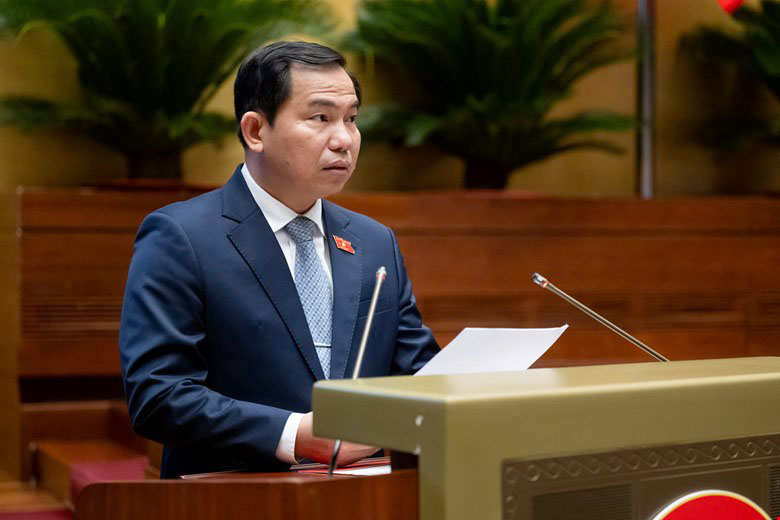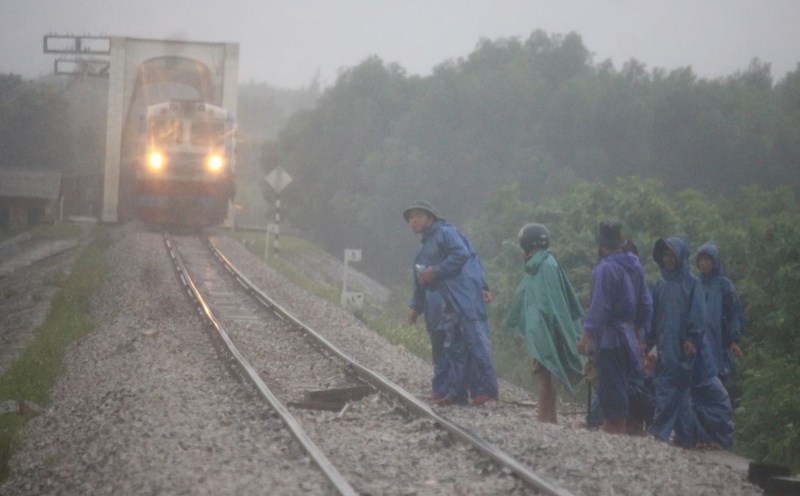On the morning of October 29, continuing the 8th Session, the National Assembly discussed the draft revised Law on Value Added Tax (VAT).
Chairman of the National Assembly's Finance and Budget Committee Le Quang Manh presented a report explaining, accepting and revising the draft law.
One of the issues that has received much attention is the application of a 5% tax rate on fertilizers. Chairman of the National Assembly Le Quang Manh said he agrees with the Government's draft law, changing fertilizers from being tax-free to being subject to a 5% tax rate.
There are other opinions suggesting keeping the current regulations because of concerns that imposing a 5% tax will increase the price of fertilizers on the market and farmers will be directly affected, affecting the cost of agricultural products.

With this content, the Standing Committee of the National Assembly stated that VAT on fertilizers was amended in 2014 in the VAT Law, changing from being subject to a 5% tax rate to being tax-free.
However, in reality, in recent times, this policy has had a very negative impact on domestic fertilizer production enterprises.
Because the input VAT of these enterprises is not deductible, it must be accounted for in costs, including very large input taxes on investment and purchase of fixed assets, causing domestic production costs to increase, making it impossible to compete with imports.
On the contrary, imported fertilizers benefit because they are currently subject to a 5% tax and are converted to non-taxable and are still fully refunded for input VAT.
Therefore, during the recent past, the Ministry of Industry and Trade, the Ministry of Agriculture and Rural Development, the State Audit, the National Assembly delegations of Bac Giang, Ca Mau, Binh Dinh, Hai Phong, Nam Dinh, Tien Giang provinces... and fertilizer associations, fertilizer manufacturing enterprises have continuously proposed to change fertilizer products from non-VAT subject to 5% tax rate.
This recommendation has also been included in the task of reviewing the system of legal documents by Government agencies and the National Assembly.
Some opinions are concerned that when fertilizers are taxed at 5%, farmers will be directly affected if domestic enterprises collude with traders to sell imported goods, raising the selling price including the VAT payable, increasing the price level of fertilizers, leading to increased agricultural production costs.
Some National Assembly deputies analyzed that imported fertilizers when sold may have their prices increased corresponding to the VAT costs that must be paid, but the proportion of imported fertilizers currently accounts for only 27% of the domestic market share. Therefore, the selling price of imported fertilizers must also be adjusted according to the market level when domestically produced fertilizers have a tendency and room for price reduction, because input VAT can be deducted or refunded, which will cut costs and lower production costs.
At the same time, fertilizer is currently a commodity whose price is stabilized by the state, so the competent authorities can use market management measures and strictly handle cases where domestic fertilizer production enterprises take advantage of newly issued policies, collude with private traders to commit acts of profiteering, causing large fluctuations in market prices, affecting the agricultural sector.
Therefore, to address the shortcomings in policies for the fertilizer production industry in recent times, the Standing Committee of the National Assembly requests to keep the bill as it was submitted by the Government to the National Assembly at the 7th Session.
At the 7th Session, in the draft revised Law on Value Added Tax (VAT), the Government proposed to change fertilizer from being tax-free to being subject to a tax rate of 5%.










